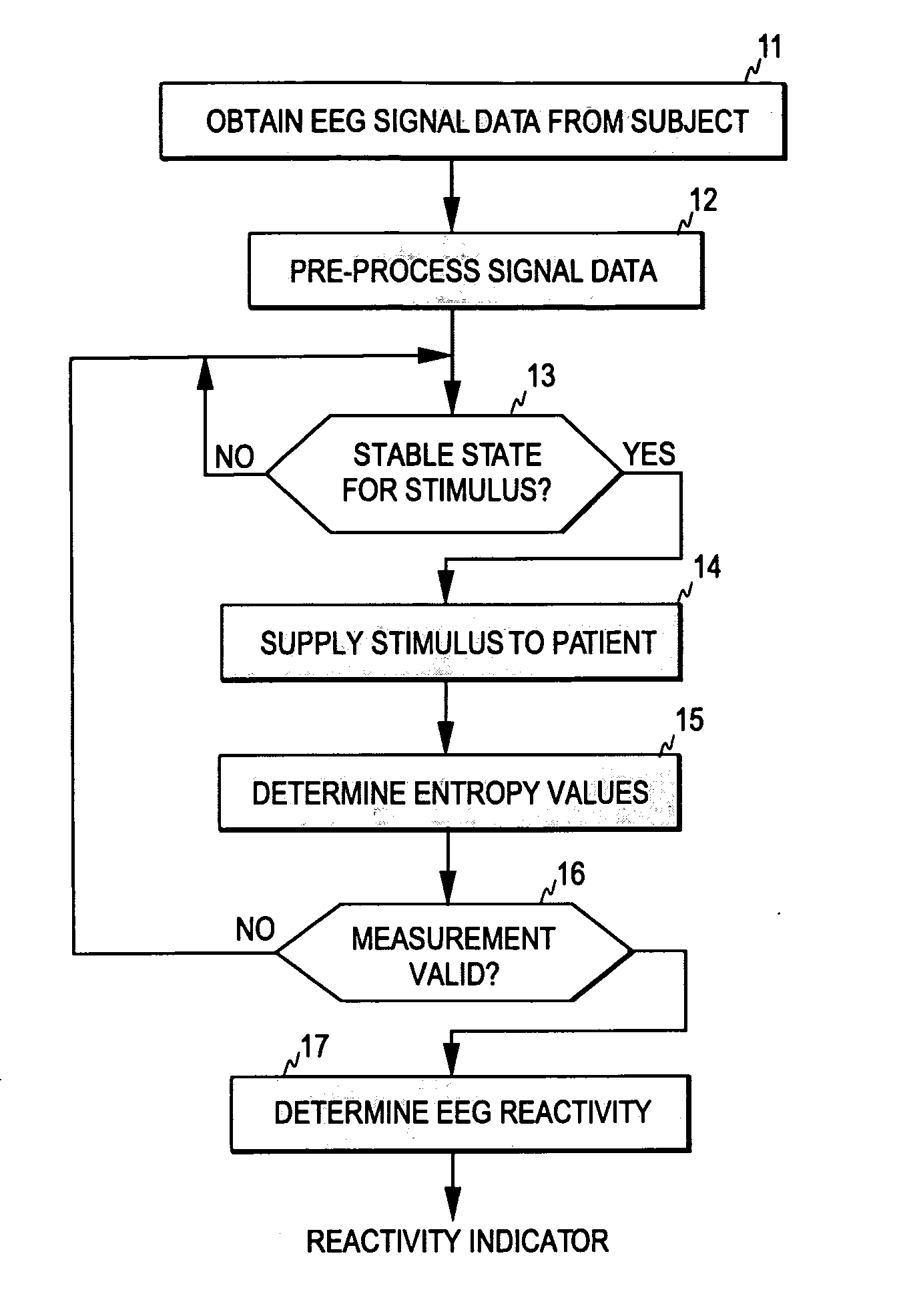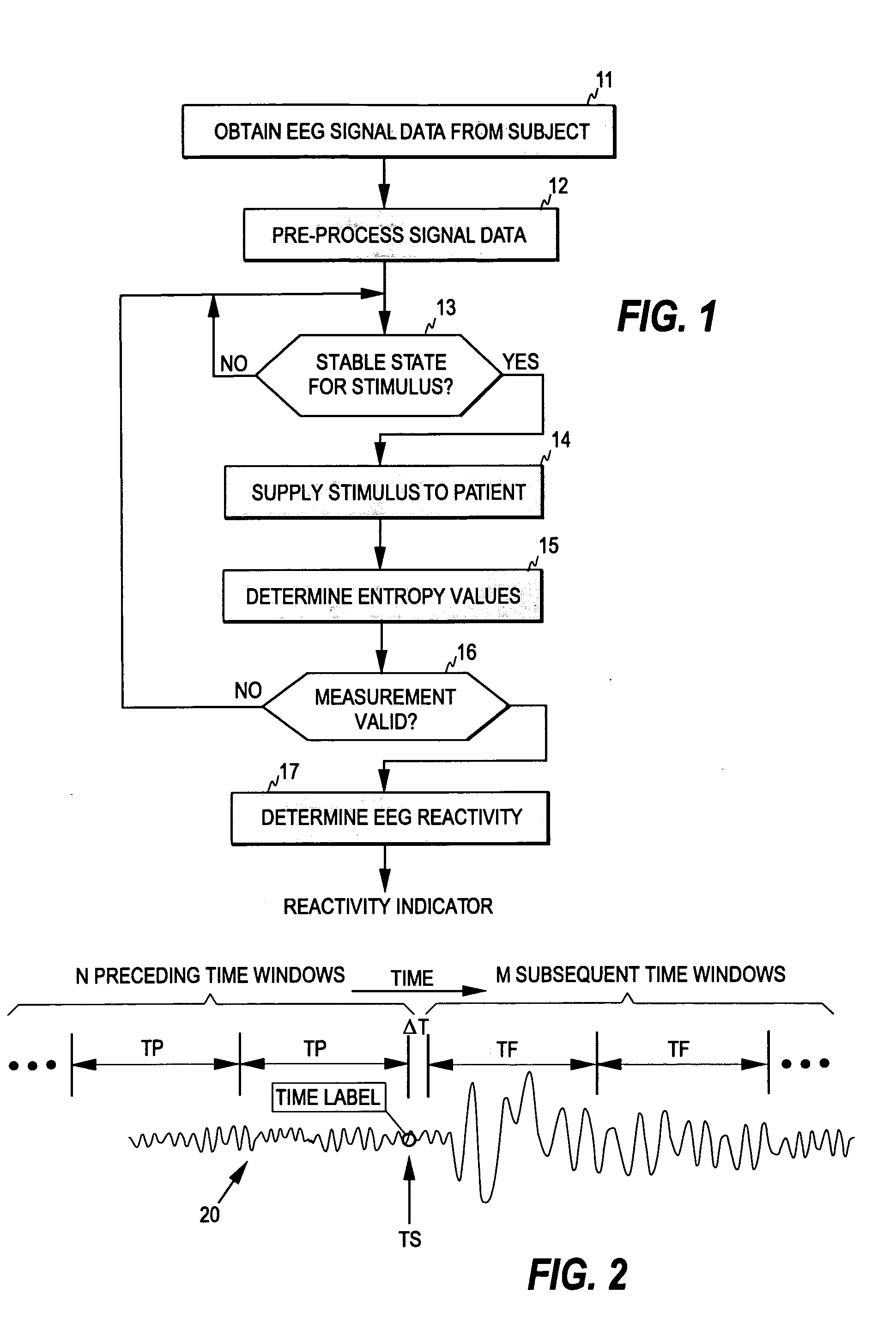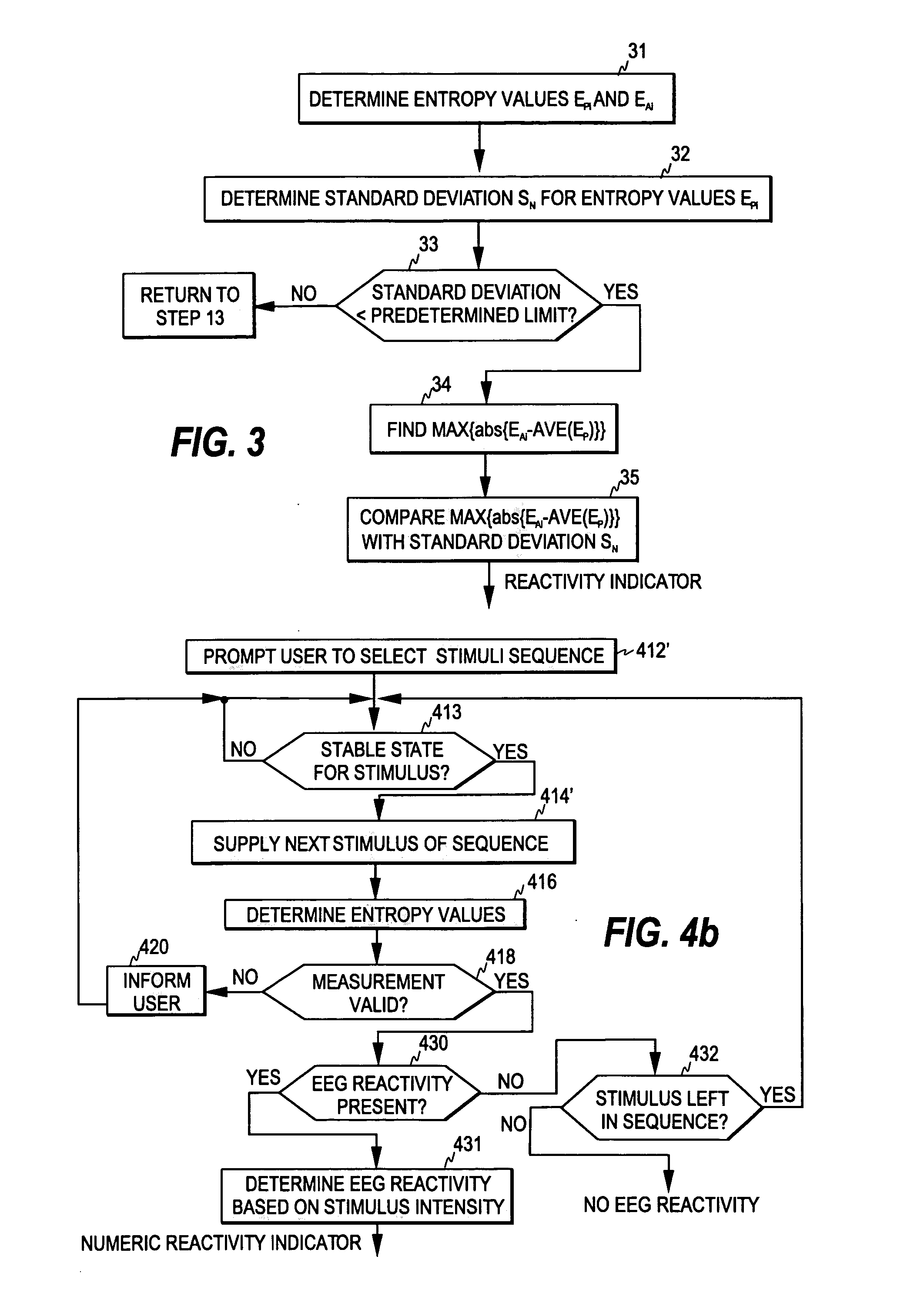Measurement of EEG reactivity
- Summary
- Abstract
- Description
- Claims
- Application Information
AI Technical Summary
Benefits of technology
Problems solved by technology
Method used
Image
Examples
Embodiment Construction
[0034]As discussed above, the present invention rests on the discovery that although various types of responses may appear in the EEG signal after a stimulus, the said responses are nevertheless such that they cause a change in the entropy of the EEG signal, or, more generally, in a measure indicative of the irregularity of the EEG signal. Therefore, the reactivity of the EEG may be quantified by measuring the change that stimulation causes in said measure.
[0035]FIG. 1 illustrates one embodiment of the present invention. The EEG signal measured from a patient (step 11) is first digitized and the sampled EEG signal is filtered to exclude high- and low-frequency artifacts (step 12). As is common in the art, the digitized signal samples are processed as sets of sequential signal samples representing finite time blocks or time windows, commonly termed “epochs”. The process may then monitor the incoming EEG signal data in order to detect a suitable moment for giving the stimulus (step 13...
PUM
 Login to View More
Login to View More Abstract
Description
Claims
Application Information
 Login to View More
Login to View More - R&D
- Intellectual Property
- Life Sciences
- Materials
- Tech Scout
- Unparalleled Data Quality
- Higher Quality Content
- 60% Fewer Hallucinations
Browse by: Latest US Patents, China's latest patents, Technical Efficacy Thesaurus, Application Domain, Technology Topic, Popular Technical Reports.
© 2025 PatSnap. All rights reserved.Legal|Privacy policy|Modern Slavery Act Transparency Statement|Sitemap|About US| Contact US: help@patsnap.com



